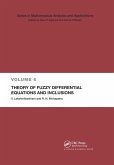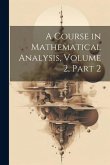Delve into the intricate world of ergodic theory with this comprehensive and meticulously crafted volume. Spanning 66 chapters, this work offers an in-depth exploration of both the foundational theories and cutting-edge applications of ergodic theory, a cornerstone of modern mathematical analysis and dynamical systems. Featuring detailed discussions on key concepts such as sigma-algebras, measure-preserving transformations, mixing properties, entropy, and spectral theory, this book serves as an essential resource for understanding the long-term average behavior of dynamical systems. Each chapter is dedicated to a specific topic, ensuring focused and thorough coverage that progresses logically to build a robust understanding of the subject. What sets this work apart is its integration of theoretical principles with practical computational tools. Incorporating Python code throughout, readers are provided with hands-on experience in applying ergodic theory to solve complex problems. This computational approach not only reinforces the theoretical concepts but also equips readers with valuable skills for mathematical modeling and data analysis in various scientific fields. Designed for advanced undergraduates, graduate students, and researchers in mathematics, physics, and related disciplines, this book bridges the gap between abstract mathematical theory and practical application. Its clear exposition, rigorous approach, and inclusion of computational examples make it an invaluable addition to the academic literature on ergodic theory. Embrace the challenge of mastering ergodic theory with this authoritative guide, and unlock the potential to contribute significantly to the field's ongoing development and its myriad applications across science and engineering.
Bitte wählen Sie Ihr Anliegen aus.
Rechnungen
Retourenschein anfordern
Bestellstatus
Storno






